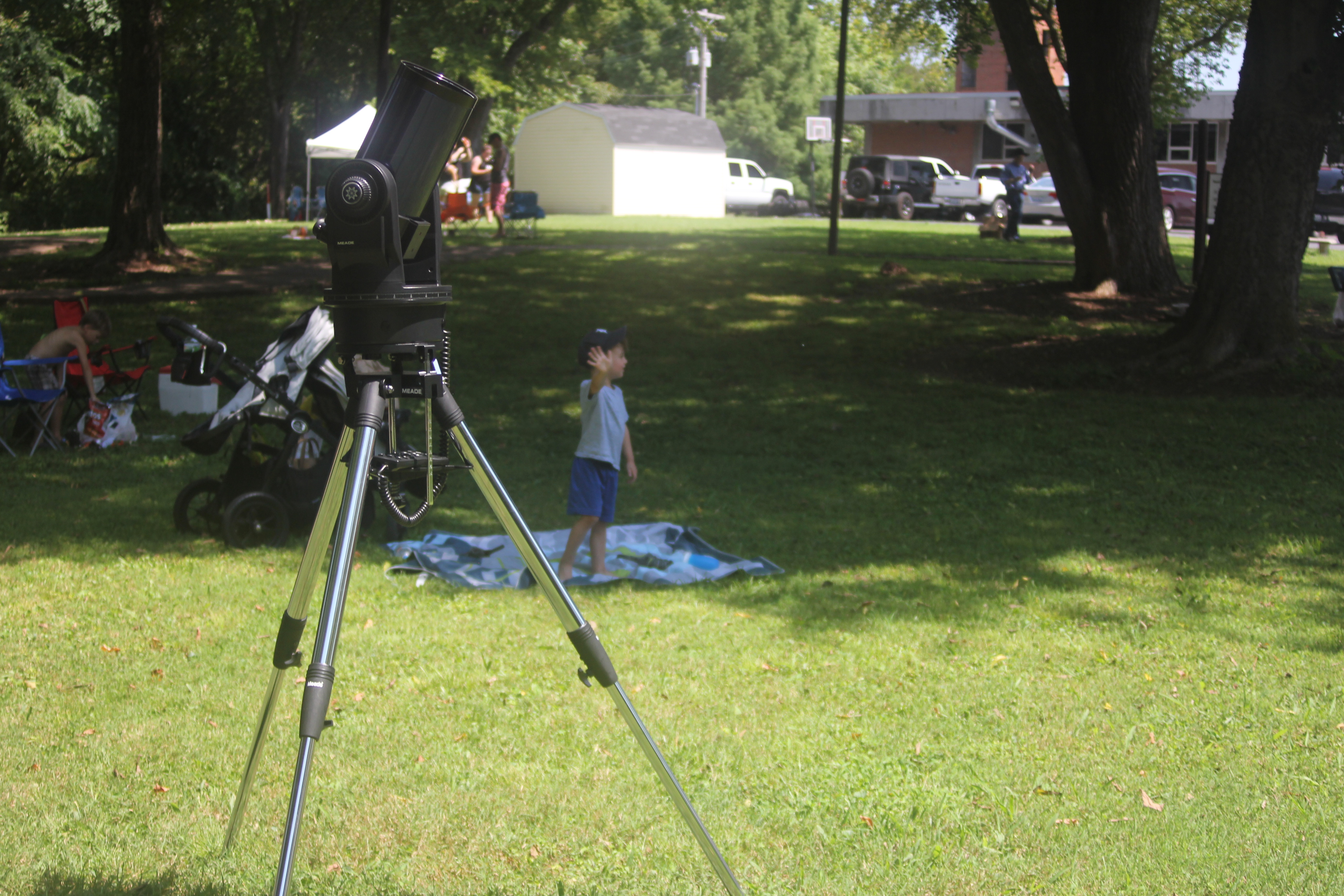
My best of the decade: SSC, Adams, Graham, Ridley,…
Hopefully it gets harder to change how we see the world as we age because we understand it better over time. That’s the good reason to be set in our ways; if we’ve already given plenty of consideration to diverse viewpoints, any additional one is less likely to add new information, and to have already been incorporated in our thinking. But it might get harder to change our perception because of more mundane reasons, like time constraints. We can’t find new ideas if we’re not spending time looking for them, and adulthood has a way of making the search for these ideas less of a priority (what with having to produce value for a living at some point, rather than consuming schooling).
With a new decade upon us, and it basically coinciding with a decade of being out of law school, I thought I’d outline a certain kind of work: the thinkers who I found in the 2010s, and who I’ve continued to read (or listen to) on a regular basis after finding them. With each of them, it was quickly apparent that they had something important to say.
Scott Alexander (www.slatestarcodex.com “SSC”)
SSC came to my attention when Scott Adams shared You Are Still Crying Wolf shortly after the 2016 presidential election. He said something to the effect that the piece wouldn’t change anyone’s mind, but it was too good not to share. That led me down a fantastic rabbit hole; SSC is essential reading. It features a very convenient Top Posts page that will get you hooked. And Alexander’s prodigious output (thousands of posts) and occasional humor (seriously, he can be hilarious) will keep you coming back.
I highly recommend I Can Tolerate Anything Except the Outgroup and The Categories Were Made For Man, Not Man For The Categories, but you almost can’t go wrong with his work. Almost. I still argue that he’s very confused with some thinking that involves ideas like – and this is a literal quote – “Jobs are actually a big cause of poverty”.
One post of interest for libertarian-types is Why I Hate Your Freedom, which he posted many years ago (reposted here), and much of which he would probably take exception to today. It’s his critique of a certain kind of libertarian thought, and it would be very useful for anyone of that sensibility to consider. To get an idea of the place from which he critiques that kind of libertarianism, see this from its Moral Issues section:
“And this generalizes to an answer to the original question. I completely agree freedom is an extremely important good, maybe the most important. I don’t agree it’s an infinitely important good, so I’m willing to consider trade-offs that sacrifice a small amount of freedom for a large amount of something else I consider valuable. Even the simplest laws, like laws against stealing, are of this nature (I trade my “freedom” to steal, which I don’t care much about, in exchange for all the advantages of an economic system based on private property).“
Scott Adams (www.scottadamssays.com)
SSC coming to my attention via Scott Adams has some kind of irony to it. One of Adams’ big themes involves the limits of logic and reason, while SSC is basically the homepage of the logic-and-reason internet.[i] We’re certainly all aware of Adams from Dilbert, but his work that has affected how I see the world came in the form of his blog and books. (Count me as not a fan of his more recent turn toward video.)
I’m sure that I had heard from him via reason.com long before eventually diving into his blog posts (much the way I did with SSC once I discovered it), but I’m not sure about the timing of that deep dive. It probably came either slightly before or just as he was pivoting to talk about Trump all the time. His campaign analysis through 2016 was excellent, particularly what he calls his “persuasion filter.” I think of that filter as the shorthand for Adams’ various beliefs about what moves us to act in many contexts. For example:
- cognitive dissonance (“a situation in which a person is presented with facts that contradict that person’s self-image, causing said person to say things that sound 100% reasonable to the speaker while sounding like nonsense to others”)
- his moist robot idea (“rational thought is mostly an illusion except for simple tasks and perhaps math. The good news is that the small, rational voice in your head can sometimes muster enough control to send you in a productive direction”)
- you persuade with emotion, not reason
- sometimes you persuade by dropping anchors, and sometimes by omitting details
- lists are persuasive, even if each individual item is weak
If you’ve read his post-election I was right book (Win Bigly: Persuasion in a World Where Facts Don’t Matter), you’ve got the idea. It rehashed much of the same material from his blog. I recommend his earlier book (How to Fail at Almost Everything and Still Win Big: Kind of the Story of My Life) more than Win Bigly, but they’re closely related. Until reading Adams, I hadn’t taken any real looks at work in psychology or advertising. That gave me a real appreciation for some different fields.
He has some writing suggestions I wish were more ingrained in me. And he’s pretty entertaining on Twitter – as we should expect from a man who writes comics for a living.
Paul Graham (www.paulgraham.com)
Paul Graham is a late addition to this list. I read some of his essays at random points earlier than this year, but it wasn’t until mid-2019 that I realized I had read more than one of them. I don’t really do New Year’s resolutions, but if I did, reading more of his essays might be the thing for 2020. I’ve referenced a few of them recently:
- Economic Inequality: “economic inequality is not just one thing. It consists of some things that are bad, like kids with no chance of reaching their potential, and others that are good.”
- The Refragmentation, in which he “propose[s] a hypothesis: that all these trends [political polarization, cultural and geographic divisions, and economic inequality] are instances of the same phenomenon. And moreover, that the cause is not some force that’s pulling us apart, but rather the erosion of forces that had been pushing us together.”
- Keep Your Identity Small: “Most people reading this will already be fairly tolerant. But there is a step beyond thinking of yourself as x but tolerating y: not even to consider yourself an x. The more labels you have for yourself, the dumber they make you.”
- The Age of the Essay was so on-target that I updated the About page of this blog based on it.
His undelivered high school graduation speech (What You’ll Wish You’d Known) should be required reading, not just in schools, but year after year by parents and kids alike. It delivers insights that should help stop us from giving up because we aren’t Albert Einstein (“I’m not saying there’s no such thing as genius. But if you’re trying to choose between two theories and one gives you an excuse for being lazy, the other one is probably right”). And it explains that feeling that so many of us experienced in high school:
“And the proof is that you’re bored. You probably weren’t bored when you were eight. When you’re eight it’s called “playing” instead of “hanging out,” but it’s the same thing. And when I was eight, I was rarely bored. Give me a back yard and a few other kids and I could play all day.
The reason this got stale in middle school and high school, I now realize, is that I was ready for something else. Childhood was getting old…. that’s what the malaise one feels in high school is: mental queasiness.”
I’ll stop talking about Graham after mentioning something that should make a nice companion piece to the graduation speech. In The Lesson to Unlearn, he expands on an insight about the evaluation systems that get ingrained in our approach to problems (“wasting your time is not the worst thing the educational system does to you. The worst thing it does is to train you that the way to win is by hacking bad tests”), and how we shouldn’t make these problems so complicated.
Matt Ridley (The Rational Optimist, The Evolution of Everything)
When you see teenagers and young adults with existential angst about the future of the Earth, what do you think? I feel bad for them. They’ve been taught that we’ll all be underwater thanks to rising oceans, or starving thanks to a boiling atmosphere, or some other such doomsday scenarios. Matt Ridley’s book The Rational Optimist is the cure. I mean that literally. Please give it to your loved ones if they’re heading down this path, or pick it up yourself if you fear these things, or if you want to understand the key to prosperity (the short version: trade).
Scott Adams talks about his filter as a mechanism to make predictions and be happy. Ridley’s analyses, both there and in his later work (The Evolution of Everything), should inform the filters that we all use. To the extent we incorporate those into our filters, I predict that those predictions will improve and that we’ll be happier.
Some key takeaways from those books include the above-mentioned key to prosperity, and that our world is much more a product of bottom-up interaction than top-down designs.
Nassim Taleb (Incerto)
Several of Nassim Taleb’s popular books (Fooled By Randomness, The Black Swan, Antifragile, and Skin in the Game) are bound to go down in history, or at least modern history, as classics. I would assume that nearly everyone reading this knows of Taleb’s work. I expect to re-read it at some point, and may have something to say about it then. Until then, just know that he once replied to an observation I made by saying “this is perfect”.
Mr. Money Mustache (www.mrmoneymustache.com)
Where Taleb made a fortune as a trader, Mr. Money Mustache is the opposite creature: a saver. And not just a saver, but the epitome of the modern financial independence/retire early movement, a man who quit his job at 30 thanks to uncommon thrift.
I don’t know anybody who lives like MMM. However, that’s exactly why his ideas need to be more widely distributed. High-schoolers and their parents need to absorb his philosophy before they add to the criminal student-loan burden that so many in this country face. Workers need to understand the numbers that he presents before we continue to save infinitesimal portions of our salaries for decades, subjecting us to lifetimes of working too hard, for too long, with too little to show for it.
Am I berating you the way that MMM scolds his readers? Not at all. And in any event, his scolding is in good fun. A taste of his recurring insults show up in the titles of some posts (e.g.,”Case Study: Average Everyday Complainypants Seeks Redemption,” “How to Tell if You’re a Complainypants,” and “What is Hedonic Adaptation and How Can it Turn You Into a Sucka?“).
But I am a big believer in tradeoffs. And if we don’t even know that working until deep into middle age isn’t required, that there are alternatives available, then we can’t decide whether the tradeoffs that he suggests are right for us.
Sam Harris (www.samharris.org)
Sam Harris came to my attention from someone sharing his appearance on Bill Maher’s show, when his arguments seemed to cause cognitive dissonance in Ben Affleck. I was impressed by his composure and response to Affleck’s comments, and started looking into his work. His Waking Up (now Making Sense) podcast was one of the first I listened to, and I picked up a couple of his books. While I really enjoy many of his podcast conversations, I found his book The Moral Landscape to be outstanding.
The foundation of a large part of Harris’s work of the last several years may be laid out in that book. While its subtitle is How Science Can Determine Human Values, and it aimed to resolve the fact/value problem from moral philosophy, that angle didn’t really resonate with me. (Some argue that that angle actually leads to some nightmarish scenarios: “It will be no objection, then, to say that you do not agree with the “scientific” conception of the moral good. After all, you do not know what is good for you. You are unaware of what you are missing. You need to have your brain updated, by force.”)
Rather, it was the return to philosophical problems after
spending several years forgetting about them. Harris is an unapologetic
opponent of moral and cultural relativism. One
review quoted a line from his conclusion in The Moral Landscape, that we “must admit that some interests are
more defensible than others. Indeed, some interests are so compelling that they
need no defense at all.” I find this conclusion to be obvious. Unfortunately,
there are people out there who have some sort of nihilism or similarly-confused
attitudes that need to be opposed. Harris seems to be doing his best to oppose
them, even if he gets things wrong from time-to-time.
[i] But they both have similar points to make on certain subjects. For example, here’s SSC:
Real arguments aren’t about what words you can apply to things and how nasty they sound, real arguments about what good or bad consequences those things produce.
And here’s Scott Adams on “word-thinking”:
I have never heard of anyone winning an argument by adjusting the definition of a word. But that doesn’t stop people from trying. We argue over whether a fetus is “living” at any particular point. We argue over the definition of a true “conservative.” We argue about whether or not Trump won in a “landslide.” We argue about Trump being a “fascist.” I doubt any of this word-thinking changed minds.
Some law professor of mine cited some Supreme Court justice (Holmes, maybe?) saying the same thing: there is much confusion caused by thinking in words and labels, rather than things and constructs. As if the truth of the idea isn’t obvious just from seeing it once, I kind of marvel at it coming from intelligent people from different backgrounds – a psychologist, a cartoonist, and a lawyer.



